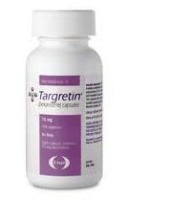
It's not just Valeant Pharmaceuticals ($VRX) that's raising prices on skin drugs. A new study shows that prices for 19 brand-name dermatology meds, including two from Valeant, have increased almost fivefold, on average, over the past 6 years.
The numbers are sure to add more fuel to the high-profile debate over price hikes in general, and Valeant's big increases in particular. According to the JAMA Dermatology article, Valeant jumped its price on skin cancer gel Targretin to $30,320 this year from $15,708 in 2014, almost double. Just 6 years ago, the same drug ran $1,687--making this year's price an 18-fold increase. Another of the Canadian pharma's skin-cancer drugs, Carac cream, carried a price 18 times higher, ringing in at $2,864 in 2015 compared with $159 in 2009. Most of those price hikes happened after Valeant acquired the drugs in 2013 and 2011, respectively, The New York Times points out.
But the study also cited rising prices for drugs from other companies, such as Novartis ($NVS) and GlaxoSmithKline ($GSK). The price for Novartis' Oxistat cream for jock itch and athlete's foot shot up 610% over the past 6 years to $545 from $77. GSK's psoriasis med, Soriatane, saw its price grow by 110% over the same period. "It's not just Valeant," Miranda Rosenberg, lead author of the study, told the WSJ. "It's a phenomenon that's going on across the pharmaceutical industry."
Rosenberg and study co-author, dermatologist Dr. Steven Rosenberg, surveyed four drugstores in West Palm Beach, including CVS ($CVS) and Walgreens ($WBA) to look at price increases between 2009 and 2015, and focused on 19 drugs out of as many as 120 included in the survey. Prices can differ geographically, but the basic findings should be consistent nationwide, the authors told the NYT.
Valeant and Glaxo are standing by their price increases. Valeant sets its prices based on R&D or drug acquisition costs and the availability of alternative meds, including generics, it told The Wall Street Journal. The company offers assistance programs when possible to keep drugs affordable for patients, it said. Glaxo is "committed to helping ensure patients can access the medicines they need" and to "thoughtfully handle price increases," the company said, as quoted by the WSJ. Novartis did not comment to the newspaper.
Still, the findings do not bode well for Valeant as it continues to deal with a rising tide of criticism over price hikes for meds. Last month, Congress said it would look into the company's prices for Isuprel and Nitropress, which Valeant raised 525% and 212%, respectively, after acquiring the drugs from Marathon Pharmaceuticals. And Valeant is the target of two federal probes over the issue, with the U.S. Attorney's Office for the District of Massachusetts and the U.S. Attorney's Office for the Southern District of New York requesting information from the company about its price increases.
Meanwhile, Valeant is still trying to recover from the fallout over its alleged ties to specialty pharma Philidor. The company severed its relationship with the mail-order pharma last month after reports suggested that the company used Philidor to amp up sales improperly. The pharmacy allegedly changed doctors' orders to get better reimbursements from payers, including scripts for many of Valeant's dermatology drugs.
- here's the JAMA Dermatology study
- read the NYT story (sub. req.)
- get the WSJ article (sub. req.)
Special Reports: 10 big brands keep pumping out big bucks, with a little help from price hikes | The top 10 most expensive drugs of 2013